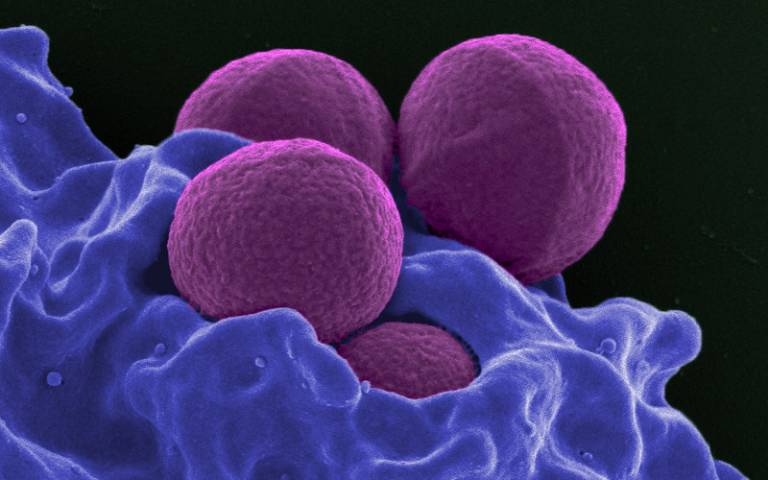Applying AI to tackle antimicrobial resistance
25 June 2019
UCL, UCLH and Great Ormond Street Hospital (GOSH) have been awarded £3.3million in government funding to apply artificial intelligence to tackle the global threat of antimicrobial resistance (AMR).

Division of Infection & Immunity Co-Director, Professor Judith Breuer, will lead a team of researchers and clinicians for the ‘Precision AMR’ initiative to improve tests for antimicrobial resistance and to develop artificial intelligence (AI) algorithms to rapidly interpret test results.
The initiative aims to enable earlier diagnosis and treatment with the right antibiotic; ensure treatment with the right dose and combination of drugs; and prevent the spread of antibiotic resistant infections. The team hope to be able to confirm cases where no antibiotic resistant infection is present in patients more quickly to avoid unnecessary treatment.
The ’Precision AMR’ team will improve tests for infections which are resistant to antibiotics, develop algorithms to analyse results of these tests, and conduct clinical trials of diagnostic tools which improve identification of antimicrobial resistance.
The team will apply machine learning approaches to the analysis of AMR tests, where algorithms make better predictions over time as they analyse more data. This data will be linked up with electronic patient records to gain information on how clinicians are using test results in clinical care to improve prescribing and patient management.
The team will also invest in new sequencers to look at bacterial DNA to identify mutations which could mean bacteria are resistant to antibiotics.
“Antibiotic resistant infections are now a major global threat to human health requiring urgent action, and we’re delighted to receive this funding in order to accelerate the development of new tools and tests for patients,” said Professor Breuer, who is supported by the NIHR University College London Hospital Biomedical Research Centre (BRC), and will be working alongside colleagues in the Division and in the UCL Great Ormond Street Institute of Child Health.
“We’re particularly excited about applying AI and machine learning to this problem, and the potential it has to improve diagnosis and treatment of patients,” she added.
Professor Peter Wilson (UCLH and UCL Infection & Immunity), one of five AMR experts on the team, said: “At present, we can quickly identify whether an organism can cause infection, but rapid detection of antimicrobial resistance has proved more difficult.”
“If we can find ways of rapidly detecting which organisms are resistant to antibiotics, we would be able to offer earlier, targeted antibiotic treatment which would cure the patient more quickly and prevent bacterial resistance emerging. This will help in situations where we really need it – in the critical first days of sepsis, for example,” he said.
The funding is part of a £32million commitment by the Department of Health and Social Care (DHSC) to research centres across the country to improve prescribing and identify patterns of resistance.
Links
- Profile: Professor Judith Breuer
- Profile: Professor Peter Wilson
Image
- Credit: 'Methicillin-Resistant Staphylococcus aureus (MRSA)' (cropped), NIAID via Flickr
Further information
- Source: UCL News; NIHR University College London Hospital Biomedical Research Centre
- Media Contact: Chris Lane, Tel: +44 (0)207 679 9222
 Close
Close

